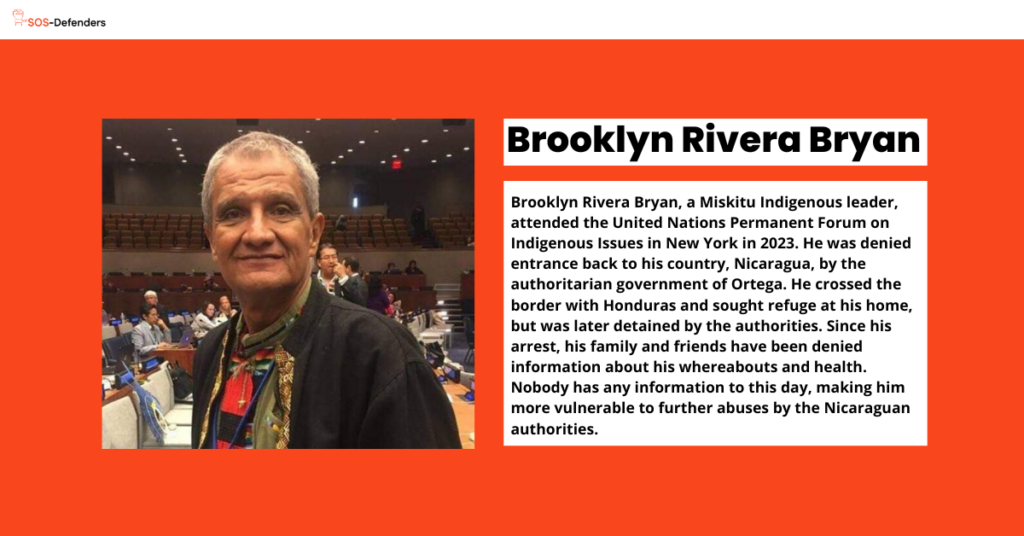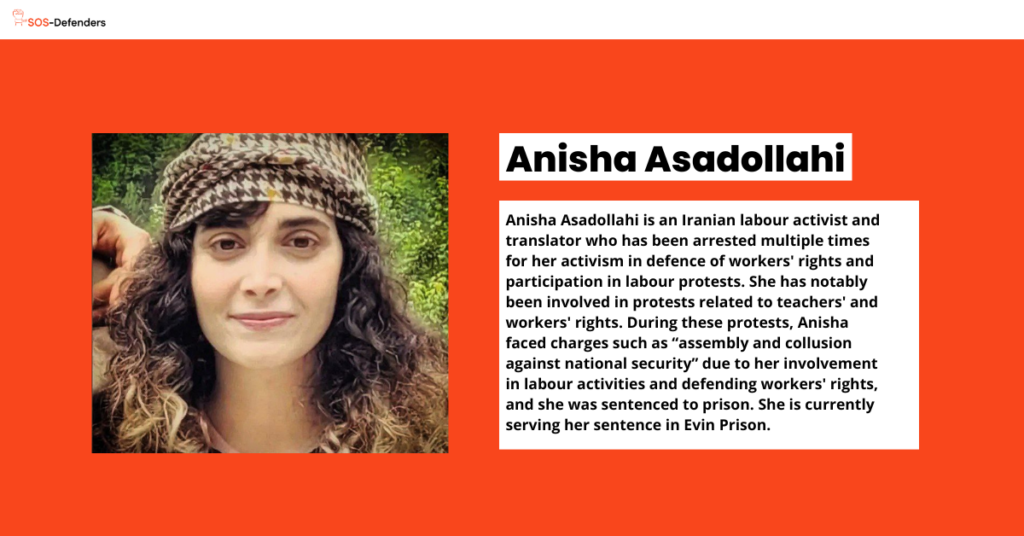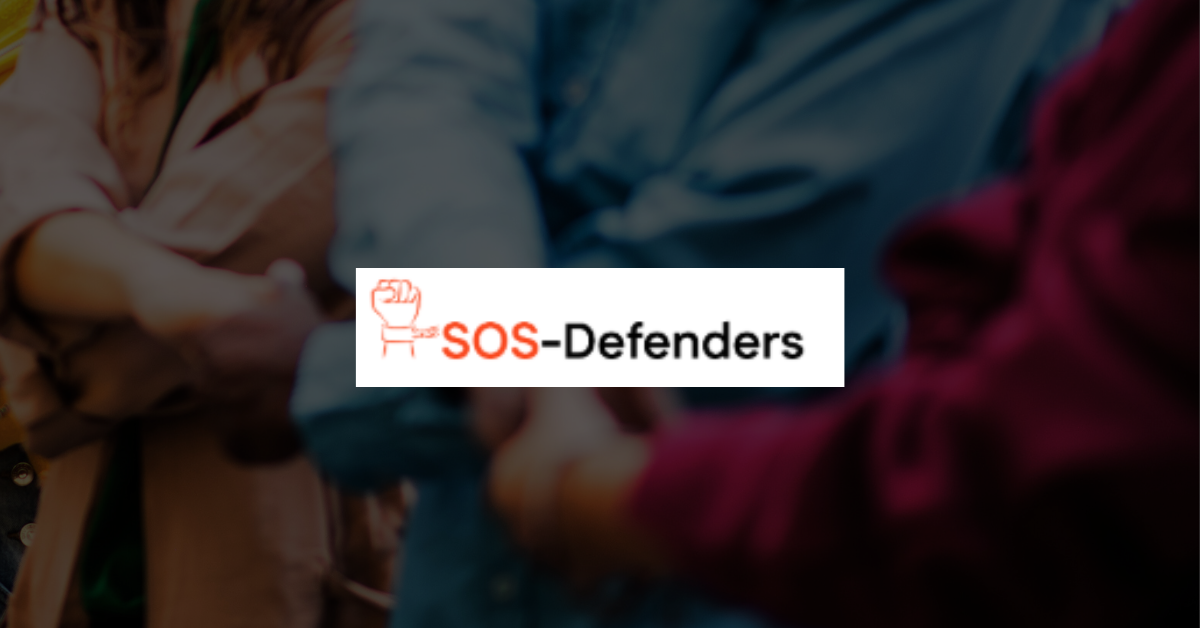Arbitrary detentions of human rights activists worldwide are becoming more and more frequent. Civil spaces are shrinking and governments are increasingly adopting restrictive laws for civil society action. Recent events in Georgia, or a few months ago in Venezuela, show the escalation of this global trend, with people detained and criminalised for peaceful protesting and other legitimate actions to defend human rights.
In response to this growing crisis, SOS-Defenders serves as a platform to document and collect global cases of human rights defenders who have been arbitrarily detained or who are at risk of detention in retaliation for their legitimate activities in defence of human rights.
The right to defend human rights
Human rights defenders (HRDs) are individuals who, either alone or with others, act peacefully to promote or protect human rights, in line with the principles outlined in the UN Declaration on Human Rights Defenders. The term “human rights defender” has been used increasingly since the adoption of the Declaration in 1998. The mandate of the UN Special Rapporteur on Human Rights Defenders is to support HRDs who play a vital role in promoting and protecting the rights of all people. Human rights defenders in every region of the world face several risks and have been subject to a wide range of human rights violations including executions, torture, beatings, arbitrary arrest and detention. According to the Working Group on Arbitrary Detention (WGAD), detention is considered arbitrary when it is not just “against the law” but involves elements such as injustice, unpredictability, or a lack of due process.


Cases like Brooklyn’s and Anisha’s are not isolated but rather show an alarming global trend, where human rights defenders are criminalised for their right to defend human rights.
About the SOS-Defenders platform
SOS-Defenders is a collective mobilisation of human rights defenders protection organisations from all parts of the world under the auspices of the Observatory for the Protection of Human Rights Defenders (OMCT-FIDH). While civil society organisations around the world are documenting these detentions on a local and regional level, SOS-Defenders aims to bring together the work of local organisations and amplify their efforts on a global scale. This way, OMCT seek to leverage their international reach to give visibility to this global phenomenon.
To be featured on the SOS-Defenders platform, individuals must meet certain criteria: they must have promoted or protected human rights, acted peacefully, and defended the rights of others. Additionally, their actions must be in line with international human rights standards, and they must have been victims of arbitrary detention in retaliation for their human rights work.
“Human rights organisations and civil society organisations are aware of the most prominent cases of human rights defenders in detention. But many cases go unnoticed. And when a case goes unnoticed, it also means that it’s much easier for a government to keep arresting and detaining people. Because if nobody holds them accountable, then they have a free hand. So the short-term goal is to give visibility to this phenomenon. The long-term goal, the ultimate goal, is that we want to achieve the release of these people. We want to reaffirm the right to defend human rights.”
— Giuseppe Scirocco, Human Rights Analyst, OMCT
Special features
Aimed at journalists, researchers, human rights institutions and states, the user-friendly platform provides up-to-date, systematised information on the number and profiles of all HRDs arbitrarily detained and at risk of detention in each country. This database enables storytelling, statistical summaries and online research, while it also features existing campaigns to free HRDs. The public database is available in five languages (English, Spanish, French, Russian and Arabic).
With a comprehensive approach, SOS-Defenders includes different HRD categories, such as migrant rights defenders, Indigenous rights defenders, land rights defenders and others. Additionally, the data model in Uwazi is designed to allow the visualisation of key trends, such as gender disparities in persecution or the increased risk of criminalisation for certain groups of defenders, such as those advocating for LGTBIQ+ rights or Indigenous rights in Latin America. Users can also filter by location, charges, and the nature of the detention and find updates on each case, such as hearings, releases, etc.
“The platform allows you to connect the human rights defenders in arbitrary detention to other data such as campaigns, countries, perpetrators, articles, etc. This way, Uwazi supports the relationship work human rights defenders need to do when for example, pursuing a case in legal court or advocacy work.”
— Lucía Gómez, Project Manager, HURIDOCS
Future plans for SOS-Defenders
Currently, in its first stage, SOS-Defenders focuses on 10 countries where the phenomenon of detaining HRDs is prominent, such as Belarus, Iran or Nicaragua, and in countries where the network counts with local partners who are experienced in this line of work. As the medium-term goal is to reach global coverage, there will be continuous training on the use of Uwazi and data management as new partners join this initiative. HURIDOCS has already led training to organisations in English, Spanish, French and Russian.
“One of the main takeaways of this project is the need to invest in local leadership. It is essential to provide local partners with the necessary resources and skills, so they can contribute and maintain the platform. Since the information we rely on comes from the field and local organisations, they must be at the centre of the initiative.”
— Giuseppe
The role of HURIDOCS
HURIDOCS played an important role in the development of this project, not only contributing to the technical side as the developer of Uwazi, but on strategic aspects as well. HURIDOCS experts worked closely with OMCT to design the platform and shape the project based on their objectives and intended political impact.
According to OMCT, what set HURIDOCS apart was its approach to technology from a human rights perspective. “What we liked about HURIDOCS was that they are not just an IT supplier; they are a partner who understands the field. They are developing technology from a human rights point of view, using open-access tools that align with our values and objectives.”
A standout feature, currently in its pilot phase, is the automated translation tool developed by the HURIDOCS Tech Team, which uses machine learning to automatically translate uploaded data and enhance accessibility.
Explore SOS-Defenders and share it with your network. Let’s stand in solidarity with human rights defenders worldwide.
